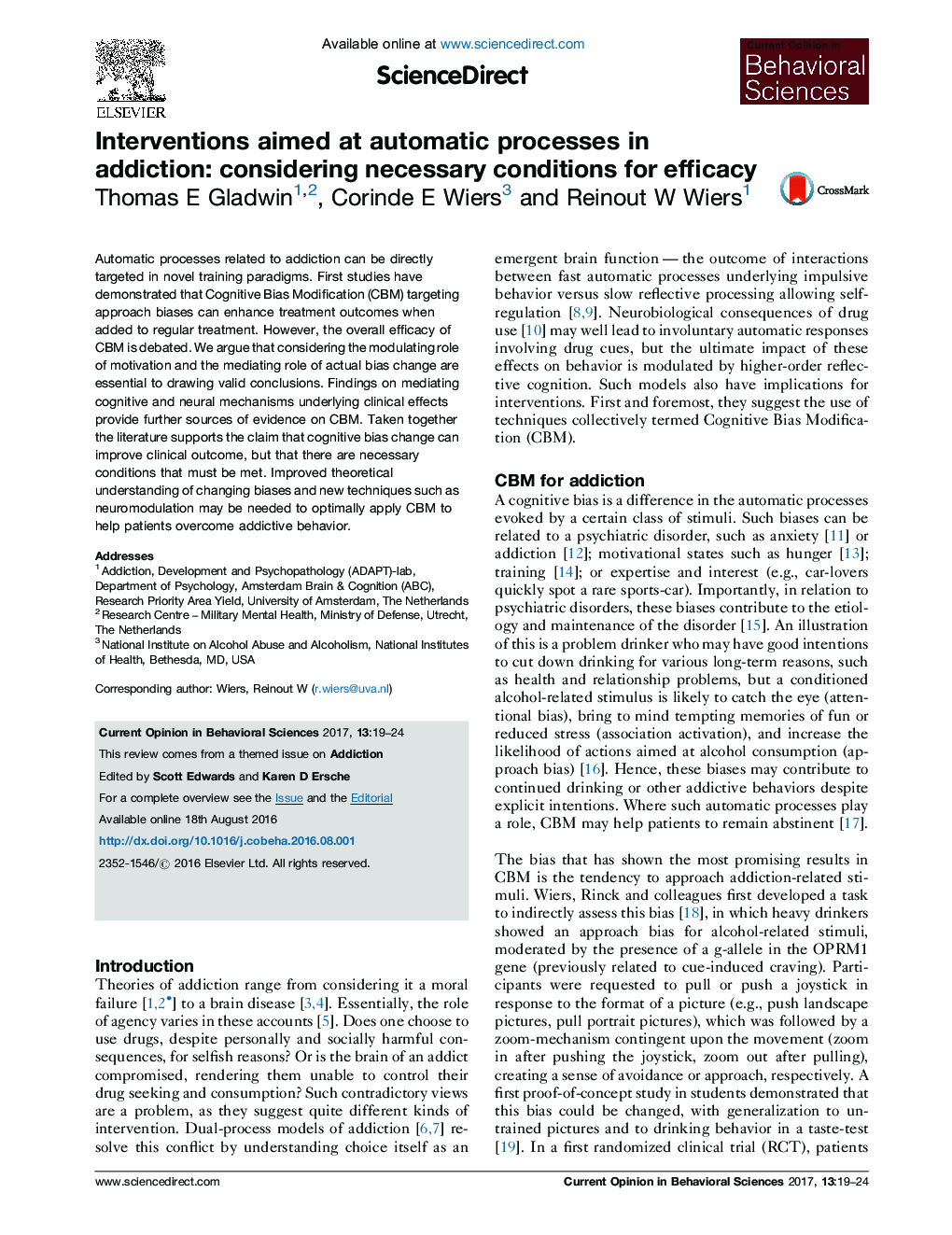| Article ID | Journal | Published Year | Pages | File Type |
|---|---|---|---|---|
| 6260284 | Current Opinion in Behavioral Sciences | 2017 | 6 Pages |
â¢Cognitive-motivational processes in addictions can be directly targeted with cognitive training.â¢Cognitive training has yielded promising findings when combined with treatment.â¢Recent studies provide a first glimpse of underlying neural mechanisms.
Automatic processes related to addiction can be directly targeted in novel training paradigms. First studies have demonstrated that Cognitive Bias Modification (CBM) targeting approach biases can enhance treatment outcomes when added to regular treatment. However, the overall efficacy of CBM is debated. We argue that considering the modulating role of motivation and the mediating role of actual bias change are essential to drawing valid conclusions. Findings on mediating cognitive and neural mechanisms underlying clinical effects provide further sources of evidence on CBM. Taken together the literature supports the claim that cognitive bias change can improve clinical outcome, but that there are necessary conditions that must be met. Improved theoretical understanding of changing biases and new techniques such as neuromodulation may be needed to optimally apply CBM to help patients overcome addictive behavior.
Graphical abstractDownload high-res image (153KB)Download full-size image
